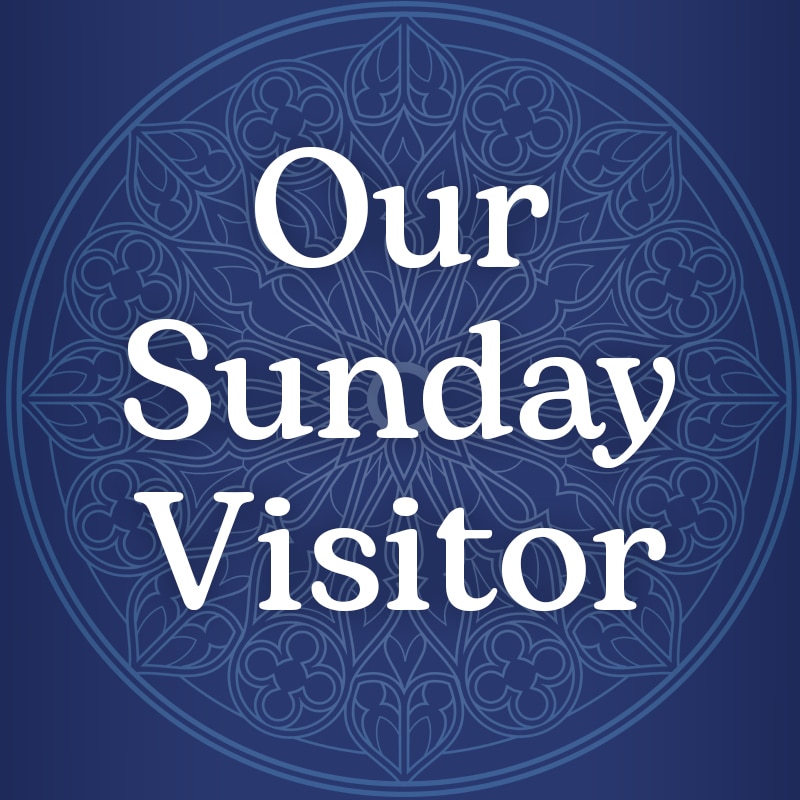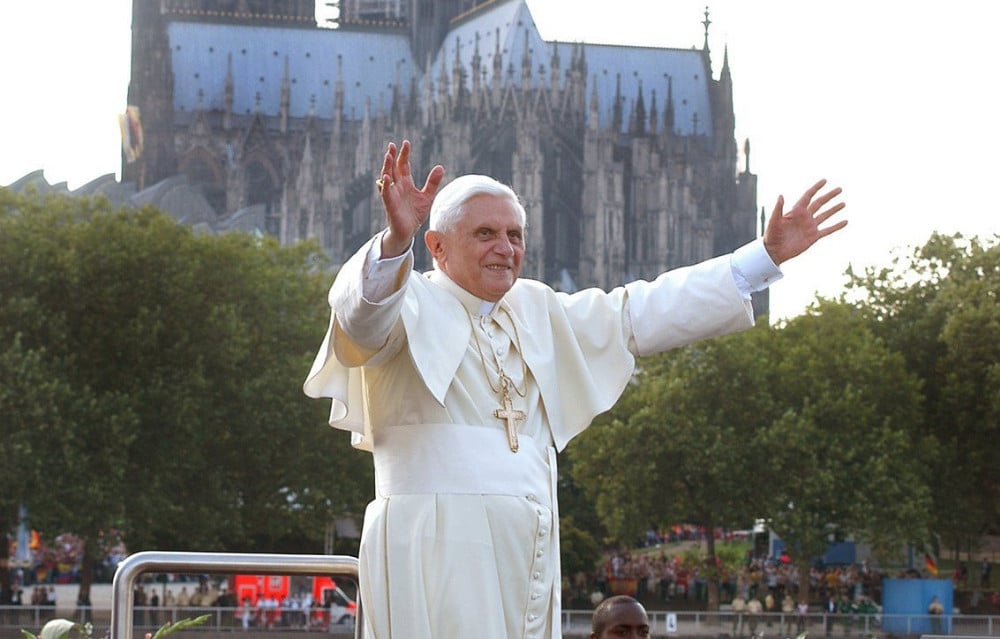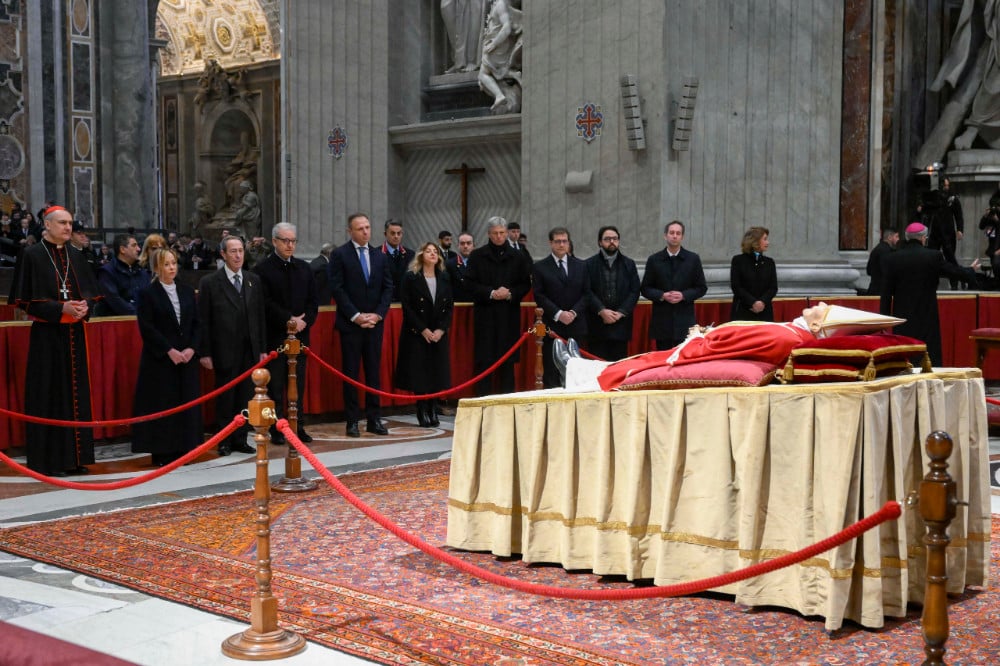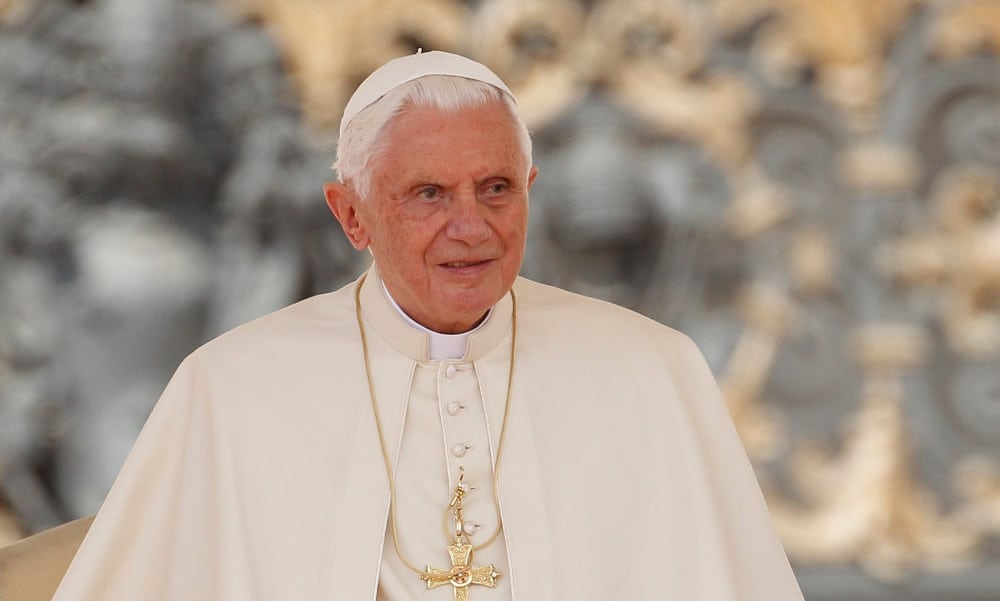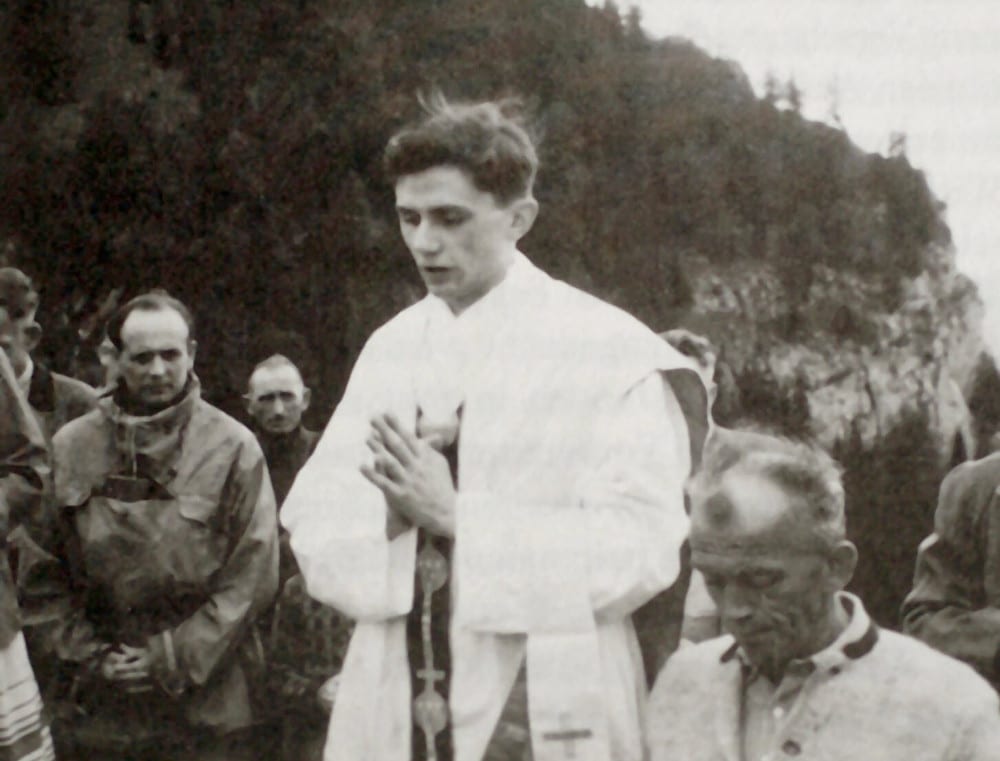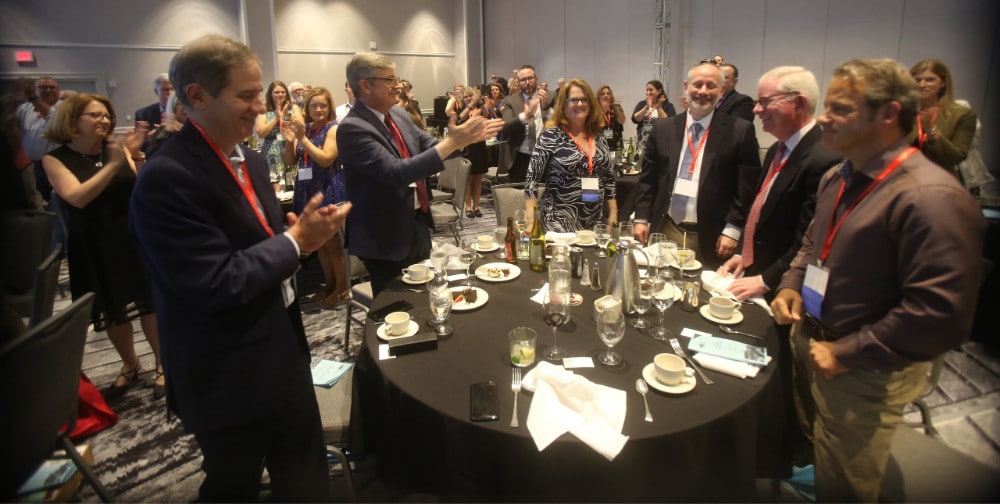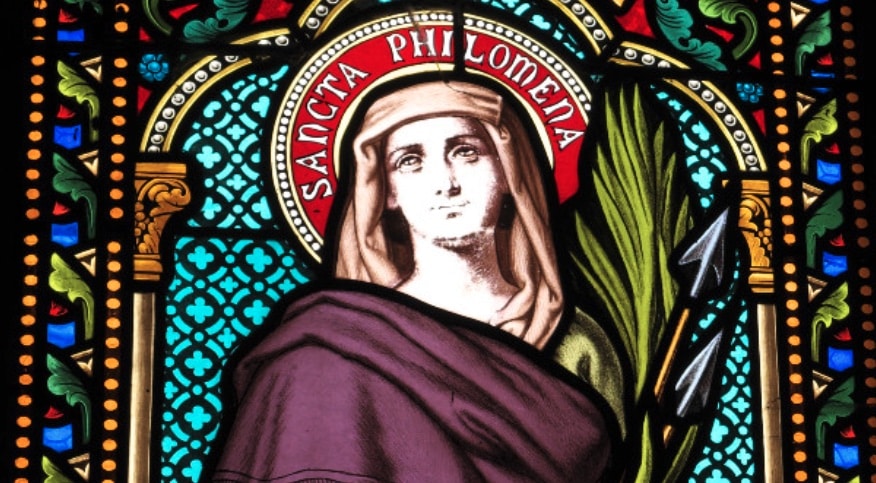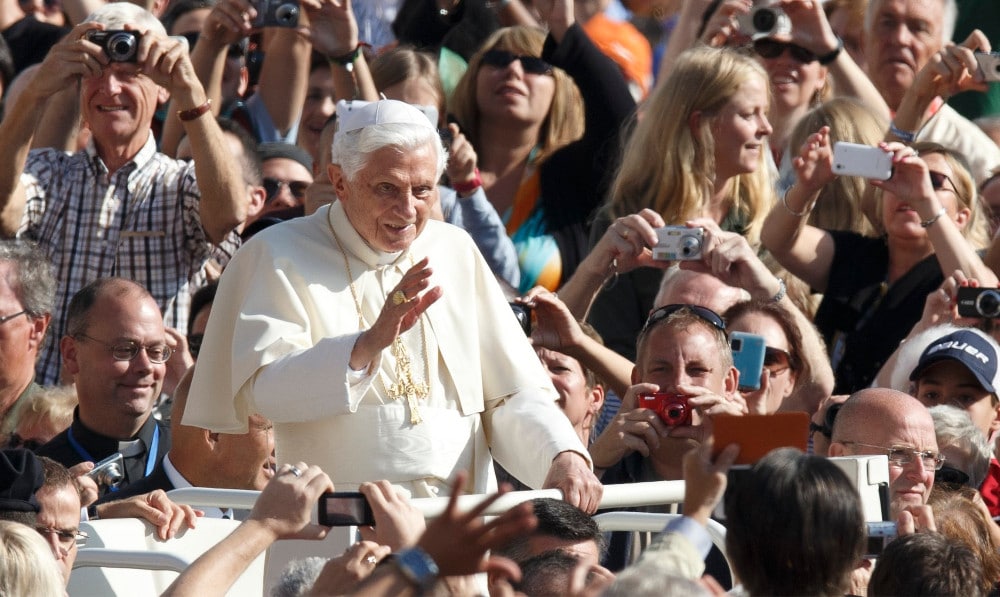Early in the morning, after hearing the announcement of the passing of our beloved Pope Emeritus Benedict XVI from this life, I went to work preparing the facade of our building. Along with another friar, I headed to the second-floor windows that overlook the main entrance of our priory, the Dominican House of Studies, and unveiled the black bunting we had prepared. As the fabric gently fell to drape our front door, I thought it proper. It seemed to signify our lives, which softly unfold through the years, allowing all that God wishes to be revealed in this life to be seen.
A few hours later, the bells of the Basilica of the National Shrine of the Immaculate Conception, situated just across the street from our priory, adjacent to The Catholic University of America, began to toll. At 9:34 a.m. local time, signifying the time of Pope Benedict’s death, the bells rang out: one somber strike for each year of the pontiff’s life. The mist that enveloped the basilica and the quiet of the morning all seemed fitting for the former pope’s peaceful passing.
Pope Benedict’s end of this side of eternity comes as a witness and consolation to us all. As pope, he once encouraged the faithful saying that we must “Raise our gaze toward heaven, not a heaven of abstract ideas nor an imaginary heaven created in art, but the true reality of heaven which is God himself. God is heaven.” For Pope Benedict, death was not a symbolic event; it is a true passing to the other side. But not just another place, a passing to union with God.
In 2016, the renowned journalist Peter Seewald interviewed Pope Benedict at length. In the course of their conversation, Seewald asked the pope if it was possible to prepare for death. Pope Benedict replied: “I think one must, even. Not in the sense of performing particular actions, but living inwardly, so that there is a final examination before God. So that one goes out of this world and will be there before God, and before the saints, and before friends and those who weren’t friends.”
Living inwardly. That was the practice of the pope emeritus these last nearly 10 years. He went on to describe the process as, “I time and time again think on the fact that it is going to end.” And lest this seem an overly transcendent exercise, Pope Benedict clarified, “The important thing is not actually that I imagine it, but that I live in the consciousness of it, that all of life ascends to an encounter.”
That encounter is nothing other than the encounter with the God of love. In his inaugural homily in St. Peter’s Square, Pope Benedict preached: “Only when we meet the living God in Christ do we know what life is. We are not some casual and meaningless product of evolution. Each of us is the result of a thought of God.”
The pontiff continued, saying that “each of us is willed, each of us is loved, each of us is necessary.” The God of love who made us destined us to encounter him. This is a very great theme, perhaps the greatest theme, of Pope Benedict’s pontificate. Encountering that love which loved us first should be the final word of his extraordinary teaching.
In his farewell address to an assembly of cardinals gathered at the Vatican, Pope Benedict shared a thought of his great theological influence, Father Romano Guardini, who said: “She [the Church] lives through the course of time, in becoming, like every living being, in undergoing change. … And yet in her nature she remains ever the same and her heart is Christ.”
Pope Benedict underscored the idea, a thought very dear to him. He insisted, “The Church is alive, she grows and is reawakened in souls who — like the Virgin Mary — welcome the Word of God and conceive it through the action of the Holy Spirit; they offer to God their own flesh.”
May the encounter of the Word of God on this side of eternity lead us all to the great encounter with Love on the next. Rest in peace, dear Holy Father.
Father Patrick Briscoe, OP, is editor of Our Sunday Visitor. Follow him on Twitter @PatrickMaryOP.
